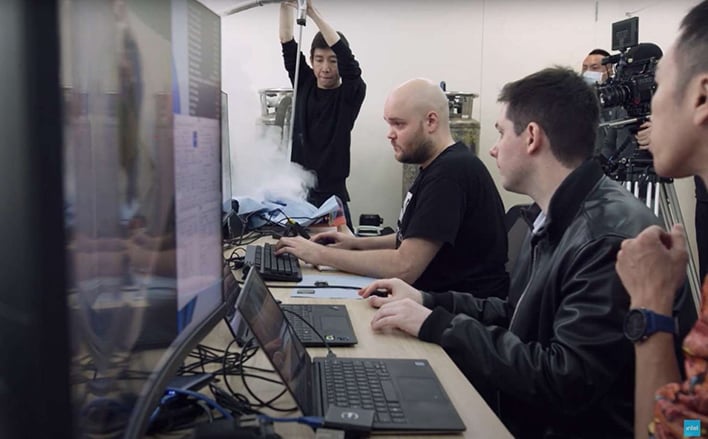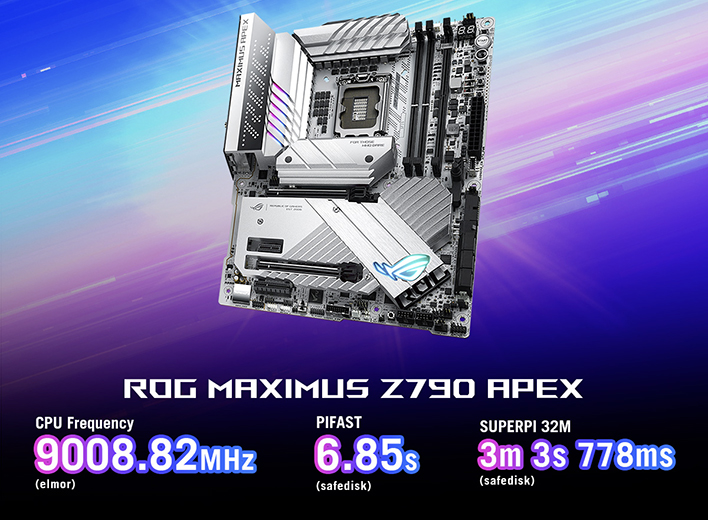An
Intel Core i9-13900K has been nudged past 9GHz, to achieve a CPU clock speed world record. En-route, the current flagship Intel 13th Gen Core ‘Raptor Lake’ processor grabbed CPU performance world records in benchmarks like PiFast and SuperPi. Intel boasts that this is the second time since launch, just three months ago, that the 13900K has leapfrogged a longstanding processor overclocking frequency world record.

Intel worked with the ASUS overclocking team for the headlining 9GHz OC achievement. Readers won’t be surprised that extreme cooling was applied to the flagship Intel CPU for it to achieve this momentous clock speed. Specifically, the processor was bathed in liquid helium while voltages were tweaked and clocks were ramped. Helium’s boiling point is -270°C / -452°F, and is thus liquid helium is significantly colder than liquid nitrogen (boiling point -196°C / -320°F). Liquid
helium is probably the ultimate choice for extreme OC feats, but it is a lot more expensive. Under the liquid helium pot, the CPU temperature was measured to be a pretty consistent -250°C.
In the headline we mentioned that the ASUS OC team managed to coax the 13900K
past 9GHz, but it wasn’t by much. A screenshot above shows the clocks in CPU-Z, and we can see that the 13900K is running with only its performance cores (P-cores) enabled and Hyperthreading disabled for the clock speed world record attempts. The official clock speed world record reported was 9008.82 MHz. ASUS branded hardware used in these world records included the motherboard, the mighty ROG Maximus Z790 Apex.
The liquid helium supply was copious enough to allow the ASUS OC team to achieve
new records in PiFast (6.85 seconds) and SuperPi 1M (3.822 seconds). However, these runs weren’t completed at a CPU clock of >9GHz. Overclocker
SafeDisk achieved his PiFast record with the 13900K running at a still formidable 8.44GHz, for example.
So, Intel’s Raptor Lake generation may have just proved to the doubters that it isn’t just an afterthought or gap filler. It will be interesting to see whether selected upcoming
Core i9-13900KS CPUs (6GHz out of the box) will be able to do even better. Now, will we have to wait until Intel Meteor Lake or future generations to break the 10GHz barrier?





